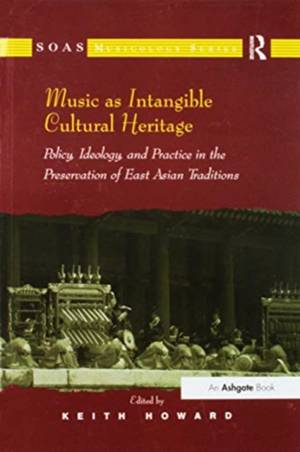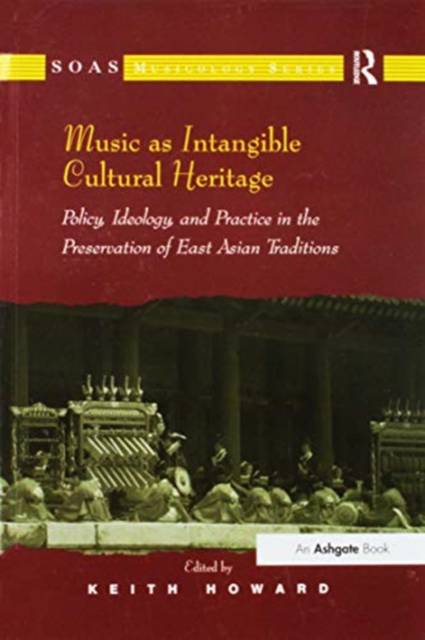
- Afhalen na 1 uur in een winkel met voorraad
- Gratis thuislevering in België vanaf € 30
- Ruim aanbod met 7 miljoen producten
- Afhalen na 1 uur in een winkel met voorraad
- Gratis thuislevering in België vanaf € 30
- Ruim aanbod met 7 miljoen producten
Zoeken
Music as Intangible Cultural Heritage
Policy, Ideology, and Practice in the Preservation of East Asian Traditions. Edited by Keith Howard
€ 106,95
+ 213 punten
Omschrijving
Focussing on music traditions, these essays explore the policy, ideology and practice of preservation and promotion of East Asian intangible cultural heritage. For the first time, Japan, Korea, China and Taiwan - states that were amongst the first to establish legislation and systems for indigenous traditions - are considered together. Calls to preserve the intangible heritage have recently become louder, not least with increasing UNESCO attention. The imperative to preserve is, throughout the region, cast as a way to counter the perceived loss of cultural diversity caused by globalization, modernization, urbanization and the spread of the mass media. Four chapters - one each on China, Korea, Taiwan and Japan - incorporate a foundational overview of preservation policy and practice of musical intangible cultural heritage at the state level. These chapters are complemented by a set of chapters that explore how the practice of policy has impacted on specific musics, from Confucian ritual through Kam big song to the Okinawan sanshin. Each chapter is based on rich ethnographic data collected through extended fieldwork. The team of international contributors give both insider and outsider perspectives as they both account for, and critique, policy, ideology and practice in East Asian music as intangible cultural heritage.
Specificaties
Betrokkenen
- Uitgeverij:
Inhoud
- Aantal bladzijden:
- 292
- Taal:
- Engels
- Reeks:
Eigenschappen
- Productcode (EAN):
- 9781138245464
- Verschijningsdatum:
- 9/09/2016
- Uitvoering:
- Paperback
- Formaat:
- Trade paperback (VS)
- Afmetingen:
- 156 mm x 234 mm
- Gewicht:
- 417 g

Alleen bij Standaard Boekhandel
+ 213 punten op je klantenkaart van Standaard Boekhandel
Beoordelingen
We publiceren alleen reviews die voldoen aan de voorwaarden voor reviews. Bekijk onze voorwaarden voor reviews.










